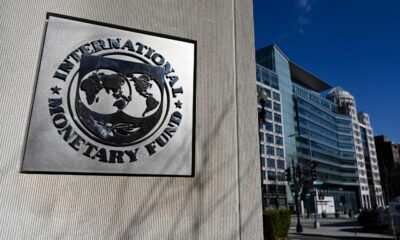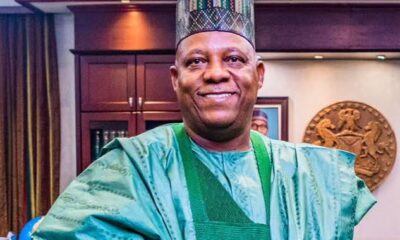The International Monetary Fund (IMF) has upheld its projection of a 3.3% growth rate for Nigeria’s economy in 2024, an increase from the 2.9% recorded in the previous year. This prognosis is based on the improvement observed in the services and commerce industries.
According to the IMF, the economic prospects in Africa’s most populous country and leading oil producer remain difficult, with a 40% increase in food price inflation in March, which has raised concerns about food security.
“If Nigeria grows at 3.3% that is just above the population dynamics, which is a big challenge,” IMF mission chief for Nigeria, Axel Schimmelpfenning, told journalists.
President Bola Tinubu has implemented extensive reforms since assuming office around one year ago. These measures include reducing expensive petrol and power subsidies and depreciating the naira currency twice within a year to decrease the difference between the official and secondary market exchange rates.
According to the Fund’s projection, fuel subsidies could amount to 3% of GDP this year since the rise in pump prices has not matched their dollar cost. Schimmelpfennig stated that policymakers are determined to gradually eliminate these subsidies within the next one or two years.
“The reforms are focused on how to raise that growth so that Nigerians can see real impacts on their living standards,” Schimmelpfenning said.
Global ratings agencies have reviewed Nigeria’s economic outlook upwards due to the impact of reforms, with Fitch the latest to revise Nigeria’s outlook to positive from stable on May 3.
“We think a lot has happened. We also have to recognise that the problems built up over many years were quite severe. We can’t expect that everything is going to be resolved overnight,” he added.
Schimmelpfenning emphasized the importance of expanding a cash transfer program and increasing government income to enhance the country’s capacity to deliver services to its population.
The IMF commended the Central Bank of Nigeria (CBN) for its recent implementation of interest rate hikes as a means to control rapidly increasing inflation. The IMF also emphasized the importance of using data-driven methods to further tighten interest rates.
The International Monetary Fund (IMF) has advised the Central Bank of Nigeria (CBN) to increase its foreign exchange reserves. Additionally, the IMF has suggested that the CBN should establish a clear and fair framework for foreign exchange interventions, with the primary goal of mitigating excessive short-term fluctuations in the market.


 Metro2 days ago
Metro2 days ago
 Metro21 hours ago
Metro21 hours ago
 Metro17 hours ago
Metro17 hours ago
 Tech17 hours ago
Tech17 hours ago





















